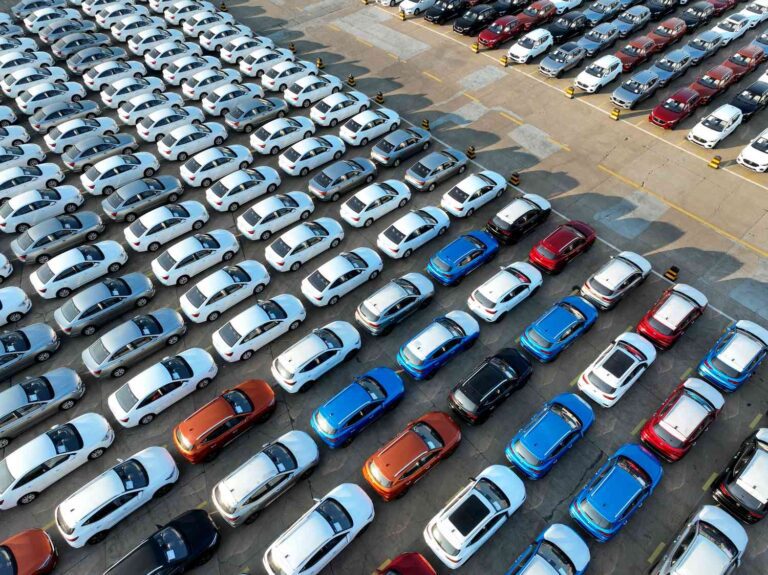Chinese carmakers have urged Beijing to impose a 25% tariff on large gasoline vehicles imported from the European Union (EU). This move is seen as a strategic response to balance the competitive landscape in the automotive sector, particularly as Chinese electric vehicle (EV) manufacturers face 38% tariff threats and rising competition in Europe.
The China Association of Automobile Manufacturers (CAAM) submitted a formal request to the Ministry of Commerce for these increased tariffs. According to sources a closed-door meeting was organized by the Ministry of Commerce. This meeting, attended by representatives from both Chinese and European automotive firms, comes as a potential countermeasure to the European Union’s recent threat to levy up to 38% tariffs on Chinese electric vehicles (EVs) starting July 4th.
The gathering in Beijing included representatives from four Chinese and six European car manufacturers. German automotive giant Volkswagen confirmed its attendance but refrained from commenting on the discussions. Other European attendees reportedly included BMW and Porsche.
The Chinese car companies at the meeting urged the government to respond decisively to the EU’s tariff threats. They proposed that China, within World Trade Organization regulations, should impose higher provisional tariffs on large-displacement petrol vehicles imported from Europe. This echoes an earlier suggestion by the state-run Global Times, advocating for 25% tariffs on cars with petrol engines exceeding 2.5 liters.
Such a move would specifically target luxury and ultra-luxury vehicles. Bill Russo, from advisory firm Automobility, noted that the additional tax is unlikely to significantly impact the overall volume of these high-end imports.
This request comes amid ongoing tensions in the global auto industry. European carmakers like Volkswagen, BMW, and Daimler have been expanding their presence in China, which remains a critical market for their growth. However, Chinese automakers have been making significant inroads in Europe, where they are starting to gain a foothold, particularly in the EV sector.
The proposed tariff increase is also seen as a response to similar protectionist measures in other countries. For instance, the United States has previously imposed tariffs on imported goods, including solar panels and washing machines, citing the need to protect domestic industries. These actions have prompted retaliatory measures from affected countries, leading to a more fragmented global trade environment.
The backdrop to this development includes a rapidly evolving automotive market in China, where hybrid vehicles have seen a surge in popularity. In China, hybrid vehicles have seen a significant surge, with their combined shipments increasing by 85%, outpacing a 14% growth in pure electric vehicle (EV) sales this year. Hybrids, including plug-in hybrids (PHEVs) and extended-range hybrids (EREVs), now make up half the size of the pure EV market and account for 12% of total passenger vehicle sales in China. Hybrids, which combine gasoline engines with electric motors, are becoming a preferred choice for many consumers due to their cost-effectiveness and efficiency. This trend poses a fresh challenge to foreign automakers, who must now compete with both pure EVs and hybrids from Chinese manufacturers.
The call for higher tariffs on European cars underscores the growing competitive pressure Chinese automakers face and their desire to leverage government policy to level the playing field. This move could have significant implications for international trade relations and the global automotive market.

